In the end of 2015 United Nations announced the new world objectives for development and growth for all nations by 2030 under the name of Sustainable Development Goals.

The new 17-odd goals are aiming to end poverty, protect the planet, and ensure prosperity for all, as part of a new world development agenda.
In order to fulfil this objectives, Parliaments across the world are called upon to bring their support and to enact legislation encouraging nations in the fulfilment of the 17 SDG`s.
The Parliamentarian Assembly for Implementation of Sustainable Development Goals will garner support from national parliaments across the world, interested in bringing world agenda for development in their national legislations and contribute to the international and global development and fulfilling the United Nations Agenda.
The first reunion of Parliamentarian Assembly for Implementation of Sustainable Development Goals will be held in Bucharest in December 2017, and will bring together, under the message of bringing to life the vaunted SDG Platform, the leaders of Parliaments and National Assemblies across the world.

IRICE President Professor Dr. Anton Caragea had stated for UN Sustainable Development publication that: he accepted the task to coordinate in the first five years the initiative, benefiting from his long-established role and expertise in uniting and engaging national legislators and make them involved in the implementation of development issues.
After the five years preparatory phase, will be created a Governing Body of advisors that includes MPs from National Parliaments and other experts to guide and effectively implement the programmes, concluded Professor Dr. Anton Caragea.
More information’s about the Parliamentarian Assembly for Implementation of Sustainable Development Goals can be read out on UN-SDG site accessible here:
October 11, 2016
Posted by centrulspri |
AMBASSADOR ANTON CARAGEA, Anton Caragea, Blackseanews Agency, Diplomacy, Environment, Foreign policy, History, Informations, Institute of International Relations and Economic Cooperation, International Relation, Mass media, News, Open Letter, OSCE-Organisation for Security and Cooperation in Europe, Politics, President Director General of Institute of International Relations and Economic Cooperation, President Dr. Anton Caragea, Professor Dr. Anton Caragea, Religion, Romanian economy, Sustainable Development Goals, United Nations Global Compact, Universities, WORLD EXPO 2017, WORLD EXPO 2020, World Social Forum | 17 Objectives aimes to make a better world and parliamentarians accross the world, bringing world agenda for development in their national legislations, IRICE President Professor Dr. Anton Caragea had stated for UN Sustainable Development publication, Parliaments across the world are called upon to bring there support and to enact legislation encouraging nations in the fulfilment of th 17 SDG`s., The first reunion of Parliamentarian Assembly for Implementation of Sustainable Development Goals will be held in Bucharest in December 2017, the five years preparatory phase, The Institute of International Relations and Economic Cooperation of Romania is deeply involved in constructing the Parliamentarian Assembly for Implementation of Sustainable Development Goals (Parlia, The Parliamentarian Assembly for Implementation of Sustainable Development Goals will garner support from national parliaments, United Nations announced the new world objectives for development and growth for all nations by 2030, will be created a Governing Body of advisors that includes MPs from National Parliaments, World Lectures on SDG |
4 Comments
Professor Dr. Anton Caragea had agreed to accept the role of Global Ambassador for Kingdom of Cambodia and will start the activities on the occasion of WORLD TOURISM DAY on 27 September 2016.
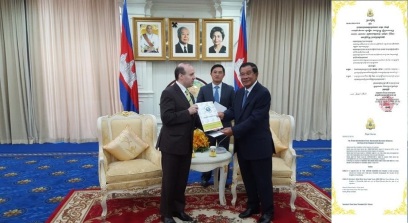
Professor Dr. Anton Caragea receives the official appointment letter from H.E. Academician HUN SEN, Prime Minister of Kingdom of Cambodia (to the left of the image, the Credential`s letter of the Kingdom Global Ambassador-Professor Dr. Anton Caragea).
On July 15th 2016, the Royal Government of His Majesty King Norodom Sihamoni of Cambodia had proclaimed that on: the virtue of his constitutional prerogatives had approved the appointment of His Excellency Professor Dr. Anton Caragea as Kingdom first global ambassador.
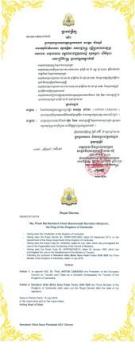 The role of the Ambassador office will be to contribute to promoting cultural and tourism profile of the Kingdom, with all the rights, prerogatives and obligations conferred upon the role of Ambassador.
The role of the Ambassador office will be to contribute to promoting cultural and tourism profile of the Kingdom, with all the rights, prerogatives and obligations conferred upon the role of Ambassador.
The appointment come in well deserved recognition of the cultural and tourism world level promotion activities implemented with outstanding success by H.E. Professor Dr. Anton Caragea.
On August 30, 2016 , Professor Dr. Anton Caragea had announced that he accepted the task to internationally represent the Kingdom of Cambodia.
The Kingdom of Cambodia represents a world example for cultural protection of a patrimony vital for humanity: the heritage of Khmer Empire.
On the point of view of importance and significance of historical patrimony Cambodia is part of a very selective circle that encompass no more than 10 nations on world level from the point of view of cultural significance.
Cambodia is also benefiting from an impressive natural patrimony, that come as a completion of my mandate, started in 2008, as World Ambassador for World Protected Areas and National Parks, so the two actions can be competed together, stated Professor Dr. Anton Caragea.
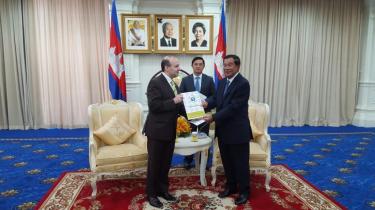
Amongst the first actions toping the agenda of the new Ambassador we can highlight: the launch a world-wide campaign to promote the paragon role of Cambodia`s cultural and historical heritage, giving a new impetus of economic, tourism and cultural connections between Romania and the Kingdom of Cambodia and carving a program of cultural and ecological investments in sustainable agricultural projects in silk and rice farms in Cambodia.
August 31, 2016
Posted by centrulspri |
AMBASADOR ANTON CARAGEA, AMBASSADOR ANTON CARAGEA, Anton Caragea, Blackseanews Agency, Cambodia, CLIMATE CHANGE, Diplomacy, Ecology, Economy, Environment, Foreign policy, History, Informations, Institute of International Relations and Economic Cooperation, International Relation, Leaders, Mass media, News, Politics, President Director General of Institute of International Relations and Economic Cooperation, President Dr. Anton Caragea, Professor Dr. Anton Caragea, Religion, Romanian economy, Romanian Foreign Policy, Sustainable Development Goals, Tourism, Travel, UNESCO Heritage List, United Nations Global Compact, Universities, World Tourism Day, WORLD TOURISM INSTITUTION | as World Ambassador for World Protected Areas and National Parks, Cambodia is part of a very selective circle that encompass no more than 10 nations on world level, giving a new impetus of economic, my mandate, On July 15th 2016, prerogatives and obligations conferred upon the role of Ambassador, Prime Minister of Kingdom of Cambodia (to the left of the image, Professor Dr. Anton Caragea had agreed to accept the role of Global Ambassador for Kingdom of Cambodia, PROFESSOR DR. ANTON CARAGEA PROCLAIMED NEW GLOBAL AMBASSADOR FOR TOURISM, Professor Dr. Anton Caragea receives the official appointment letter from H.E. Academician HUN SEN, role of the Ambassador office will be to contribute to promoting cultural and tourism profile of the Kingdom, started in 2008, the Credential`s letter of the Kingdom Global Ambassador-Professor Dr. Anton Caragea)., The Kingdom of Cambodia represents a world example for cultural protection of a patrimony vital for humanity: the heritage of Khmer Empire, the launch a world-wide campaign to promote the paragon role of Cambodia`s cultural and historical heritage, the Royal Government of His Majesty King Norodom Sihamoni of Cambodia had proclaimed that on: the virtue of his constitutional prerogatives had approved the appointment of His Excellency Professor Dr., tourism and cultural connections between Romania and the Kingdom of Cambodia and carving a program of cultural and ecological investments in sustainable agricultural projects in silk and rice farms in, well deserved recognition of the cultural and tourism world level promotion activities implemented with outstanding success by H.E. Professor Dr. Anton Caragea, will start the activities on the occasion of WORLD TOURISM DAY on 27 September 2016, with all the rights |
2 Comments
Romania will host the next General Assembly of the European Tourism Organization, scheduled for May 2016, following a proposal from Romanian Parliamentary Committee.

Romanian landscape is littered with castles and historical monuments: in the photo-Enisala, byzantine fortification from XIII century, a monument that will be visited by European tourism delegates.
In a Parliament announcement, the Organization revealed that during this year’s meeting, Romanian parliamentarians proposed Bucharest as the event’s next location, a suggestion which was warmly welcomed.
“This development is a success and honour for the country and confirms, once again, the appreciation and trust that Romania enjoys in the European bodies and decision-making centers,” the parliamentarians stated.
During the works of the General Assembly in Bucharest, the European Tourism Organization will discuss issues concerning the tourist industry at a European level, such as joint promotion of European tourism in third countries, visa issues and the promotion of best practices.
The member states also will table the current critical developments in Europe and agreed on a communiqué in to highlight tourism industry concerns regarding the refugee crisis, the world conflict and the world-wide destruction of cultural heritage.
The election of the country as WORLD BEST TOURIST DESTINATION IN 2016 and of the city declared WORLD CAPITAL OF CULTURE AND TOURISM FOR 2016 will also take place.
It was stressed that these issues should be addressed with a common voice at Bucharest meeting.
May 15, 2016
Posted by centrulspri |
Blackseanews Agency, Diplomacy, Ecology, Economy, Environment, European Council on International Relations, Foreign policy, History, Informations, Institute of International Relations and Economic Cooperation, International Relation, Mass media, Religion, Romanian economy, Sustainable Development Goals, Tourism, UNESCO Heritage List, United Nations Global Compact, WORLD BEST TOURIST DESTINATION AWARD, World Cup, WORLD TOURISM INSTITUTION, world tourism institution-European Council on Tourism and Trade | a monument that will be visited by european tourism delegates, byzantine fortification from XIII century, Enisala, following a proposal from Romanian Parliamentary Committee, highlight tourism industry concerns regarding the refugee crisis, ROMANIA IS HOSTING EUROPEAN TOURISM MEETING FOR 2016, Romania will host the next General Assembly of the European Tourism Organization, Romanian landscape is littered with castles and historical monuments, scheduled for May 2016, such as joint promotion of European tourism in third countries, the European Tourism Organization will discuss issues concerning the tourist industry at a European level, the world conflict and the world-wide destruction of cultural heritage, visa issues and the promotion of best practices, works of the General Assembly in Bucharest, WORLD BEST TOURIST DESTINATION IN 2016, WORLD CAPITAL OF CULTURE AND TOURISM FOR 2016 |
Leave a comment
On 13 October 2015, during the European Tourism Webinar on Culture and Tourism, Professor Dr. Anton Caragea, MA, FINS, ETA, offered his support for Georgia efforts to be promoted across the world as a prime class touristic destination and as host of Silk Road Forum.
Professor Dr. Anton Caragea presented his assessment of Georgian tourism and cultural potential in a report titled: TBILISI: THE CITY WHERE HISTORY IS ALIVE!

TBILISI: hopes to become in the future a world capital of culture and host of Silk Road Forum-2015
The report highlighted among the reasons to promote Georgia cultural patrimony the following historical and architectural treasures :
The historical potential of the Old City garnering old-style constructions, ancient churches, winding, narrow streets, and charming shops. The Old City was a major stopping point for traders and goods and ideas took refuge in Tbilisi on their long journeys along the Silk Road from Asia to Europe.
Other reasons are: Supporting the development and protection of cultural and historical shrines of the Republic of Georgia and the transformation of Tbilisi into a historical and spiritual centre, offering to visitors a glimpse into the heritage of people’s of Georgia.

The medieval sulfur baths of Tbilisi-a unique city feature and possible a registered monument on the capital of culture list.
The presence of city symbols like Narikala Fortress – one of the most famous, oldest and most travel thought historic sites of Tbilisi.

Narikala Fortress- a symbol of Georgian independence spirit and resilience in front of historical difficulties.
It was established in the 4th century and was considerably expanded over subsequent centuries. Much of what remains today dates from the 16th and 17th centuries.
Giving tourists access to outstanding religious and cultural symbols like Metekhi Church – (built by the Georgian King Demetre II around 1278-1284).
It is an unusual example of religious architecture and remains a perfect model of Georgian Orthodox Church although it was damaged and restored multiple times.
Other landmarks are: Gabriadze Theatre- founded by and named after Georgian artist as well as screenwriter, stage director, painter, sculptor and puppeteer, Revaz (Rezo) Gabriadze. The first puppet show was staged at the theatre in 1981.

Metekhi Church-hopes to become a registered World Capital of Culture and Tourism monument.
In Tbilisi cultural landscape and proximity we found also Mtskheta – one of the oldest cities of Georgia is located about 20 kilometers north of Tbilisi at the confluence of the Aragvi and Mtkvari rivers.
The city is considered to be one of the oldest continuously inhabited cities in the world and today is populated by around 19 500 people. The town has an extraordinary importance to the Georgian Nation as it was the capital of the eastern Georgian kingdom of Iberia from the 3rd century BC to the 5th century AD. Mtskheta was the site of Georgia’s adoption of Christianity in 334 and remains to be one of the headquarters of the Georgian Orthodox Church.
Mtskheta is of primary interest to any visitor interested in Georgian history and/or Orthodox Christianity.
In the same area of cultural landscape we must note the presence of Jvari Monastery – “the Church of the Holy Rood” is situated on top of the hill on the left bank of the Aragvi River.
In 2004, the monastery was placed on the UNESCO World Heritage List as part of the “Historical Monuments of Mtskheta” and was added to the UNESCO List of World Heritage in Danger in 2009.

Svetitskhoveli monastic complex a perfect religious and cultural crux of Georgia tourism potential
Another vicinity land mark for TBILISI is the Svetitskhoveli complex that includes the 11th century cathedral, the palace and gates of the Katolicos Melchizedek from the same period, and the 18th century gates of Erekle II. The cathedral is domed and cruciform in plan.
The interior was originally covered with wall paintings, but these were whitewashed over and only recently have fragments of them been revealed again.
If this will ever happen, will be a perfect recognition on behalf of world tourism community and an encouragement for Georgian authorities to pursue the avenue of cultural tourism in placing the country on the lofty plinth, but this in the future, remarked Professor Dr. Anton Caragea.
October 14, 2015
Posted by centrulspri |
Anton Caragea, Blackseanews Agency, CAPITAL OF CULTURE AND TOURISM, Diplomacy, Ecology, Economy, Environment, Georgia, History, Informations, International Relation, Mass media, News, Politics, President Dr. Anton Caragea, Professor Dr. Anton Caragea, Religion, Tourism, Travel, UNESCO Heritage List | 13 October 2015, during the European Tourism Webinar on Culture and Tourism, ETA, FINS, MA, Metekhi Church-a registered World Capital of Culture and Tourism monument, Narikala Fortress- a symbol of Georgian independence spirit and resilience in front of historical difficulties., offered his strong support for Georgia efforts to be promoted across the world, ON EUROPEAN TOURISM WEBINAR PROFESSOR DR. ANTON CARAGEA PROMOTES TBILISI-THE CITY WHERE HISTORY COMES ALIVE !, professor Dr. Anton Caragea, Professor Dr. Anton Caragea presented his assessment of Georgian tourism and cultural potential, Svetitskhoveli monastic complex a perfect religious and cultural crux of Georgia tourism potential, Tbilisi on their long journeys along the Silk Road from Asia to Europe, TBILISI: the world capital of culture and host of Silk Road Forum-2015, The medieval sulfur baths of Tbilisi-a unique city feature and registered monument on the capital of culture list. |
1 Comment
Remarks
by Ambassador of Kazakhstan Daulet Batrashev on the Conference dedicated to the celebration of the 550th anniversary of the foundation of
the Kazakh Khanate (Statehood)


Sultans Zhanibek and Kerey-the founding fathers of Kazakh Khanate in Taraz-1465
Your Excellencies,
Dear friends!
This is a highly symbolic year for all citizens of my country.
It was exactly 550 years ago, in the center of the Eurasian continent, that our ancestors founded the Kazakh Khanate, a great creation of the nomadic civilization.
It was the starting point in the centuries-long nationhood of our people, which has found its fullest expression in the modern country named Kazakhstan.
As our head of the state, Nursultan Nazarbayev has written: “Assessing Kazakh history, we must abandon the many stereotypes and instead understand properly what aspects of traditional Kazakh society have ‘imprinted’ themselves into our modern nation.”
It is this centuries-long period of the history of our country that laid the foundation not only of our modern state but also of our multi-vector foreign policy.
The Kazakh Khanate was not, of course, the first chapter in the history of the Kazakh people.
It was heir to the Great Steppe empires – the Turkic Kaganate (of the 6th to 8th centuries) and Eke Mongol Ulus (the Great Empire of Genghis Khan).
However, their origins and development can be traced much further back in time.
The ancient history of the Great Eurasian steppe zone is primarily a history of militant nomadic tribes.
The current territory of Kazakhstan were lands inhabited by Iranian-speaking and Turkic-speaking tribes: the Saka, Kangly, Usuns and Huns.
These ethnic groups had to permanently overcome the twists and turns of war, established diplomatic relations, concluded trade agreements, struck political and military alliances, to extend permanently the territorial framework for the future Kazakh state of today.
Even in the second half of the 5th century BC the man known as the Father of History, the Greek author Herodotus described the vast eastern country of Scythia, which would be also known as “the country of Saka people”.
Ancient Persian sources placed Saka, the population of Great Steppe, to the north of the Amudarya and Syrdarya rivers.
The Saka civilization to the west was in contact with the Ancient Greeks and to the east with the Chinese.

The Silk Road was crossing the heartland of Kazakh Khanate
To the south, the Saka’s nomadic country of Turan bordered Iran, the land of Indo-Aryan people.
It was this era when the Silk Road, the trade artery linking the early civilizations of East and West first began to emerge.
We also saw the rise of the first political entities within the present territory of Kazakhstan.
Some historians cite Zoroastrianism’s sacred book of Avesta to point to a state named Kangkha in the midstream of the Syrdarya River around the 7th and 6th centuries BC.
According to ancient Chinese document, the Book of Han, roughly the same areas were occupied in the 2nd century BC by the State of Kangyui.
A successor to the political traditions of the Saka tribes, covering roughly the lands of modern-day southeastern Kazakhstan and northern Kyrgyzstan, was the State of Usun.
The arrival of the Great Empire of Huns signaled a milestone in the ethnic, cultural and political development of the people of this land.
In the middle of the 6th century, a decisive role in the development of language, culture and the worldview of the tribes inhabiting Kazakhstan was played by the Turk Empire or Turkic Kaganate (referred to in written sources as “Turkic El”), a major power of the Early Middle Age.
The first kagans’ policies were so in tune with the interests of all Turkic tribes that the limits of their authority quickly expanded as far as the Black Sea in the west and the Great Wall of China in the east.
Based on authoritative historical sources, President Nazarbayev has written, “The first Turkic Empire (552-603) was part of the system of political and economic relations between Byzantium, Iran and China.

President Nursultan Nazarbayev has succeeded in putting in the center of the modern Kazakhstan the values of history and tradition
In its heyday, the Turkic Empire stretched from Manchuria to the Gulf of Kerch and from the Yenisei River to the Amu Darya. Therefore Turkic Kagans became the creators of the first Eurasian empire”.
According to both medieval and modern historians, the Turkic states were the direct successors of the Hun Empire.
The Turks, drawing on the achievements of western and eastern nations, created a distinctive culture with its own writing system, the so-called Orkhon-Yenisei runic script.
Being at the crossroads of different religions, such as Tengrism, Christianity, and Buddhism, the Turkic Kaganate also played a huge role in their subsequent development.
Following the collapse of the Turkic Kaganate, a series of new ethno-political unions of Turkic tribes emerged one after another.
In the area of the Irtysh River, the State of Kimaks appeared in the late 8th century.
Its fall was caused by a powerful wave of migration from the east and in the middle of the 9th century began the rise of Kypchaks.
Eventually they occupied much of Eurasia’s Great Steppe, with its borders stretching from the Irtysh to the west as far as the Danube’s mouth, with the entire area labeled in Arabic and Persian sources of the period as Desht-i Kypchak (or the Kypchak Steppe).
In Russian sources, the Kypchaks were called Polovtsy and European ones named them Kumans or Kuns.
During the 12th and 13th centuries in Desht-i Kypchak there was a migration of large masses of the population.
The Kypchak confederation was a set of clans and tribes, brought together by both military and economic factors and from which the cultural and linguistic unity of the people gradually emerged.
The fundamental transformation of political and cultural values, economic and ethnic components of Eurasian political entities came in the 13th century after the unification of the entire nomadic Central Asian peoples under the Mongol Empire or Horde led by Genghis Khan.
This emerged following the Supreme congress of nomadic tribes or QURULTAY – in 1206.

Kazakhstan Ambassador-Daulet Batrashev presents a detailed outline of the importance and significance of 550 years of Kazakhstan history
Renowned early 20th century Russian historian of Central Asia Vasily Bartold highlighted the deep connections between the Turkic Kaganate and Genghis Khan’s Empire.
According to him, the numerically dominant Turkic-speaking tribes gradually assimilated the core group of Mongolian-speaking warriors in central parts of the Eurasian plains to shape new state entities in the Great Steppe.
Another milestone event for the future of the Kazakh Khanate was the partition of the empire of Genghis Khan into several smaller informal states.
Among them, perhaps the largest was the Golden Horde (Altyn Orda) managed by the descendants of his eldest son Juchi.
The Golden Horde was the first centralized state in post-Mongol period that included most of the modern Kazakhstan’s territories.
Initially part of the Mongol Empire, it was under the control of Genghis Khan’s grandson, Batu (1242-1256), who behaved essentially as an independent ruler.
The key principles of nomadic statehood, which were laid in the foundation of the Golden Horde, were relevant for several other political entities, which developed from Genghis Khan’s descendants in the Great Steppe including the White Horde, the Abulkhair Khanate, Moghulistan, and eventually, the Kazakh Khanate.
 Unlike in the previous era, each of these had a number of important features as they emerged largely or exclusively on the territory of modern Kazakhstan.
Unlike in the previous era, each of these had a number of important features as they emerged largely or exclusively on the territory of modern Kazakhstan.
They had similar political structures and far-reaching similarities in their economic and cultural development.
In addition, they had common dynastic origin, sharing the tradition derived from Gengis Khan and his descendants of the exclusive right of authority.
In the broader historical context, the remarkable civilization of the Great Eurasian Steppe in the medieval period left its imprint on the development of many of its neighbors too including Iran, China, India, Byzantium, Russia and the countries of Eastern Europe.
It was on the basis of the nomadic civilization that the Kazakh people’s first formalized state emerged and on which the best traditions and accomplishments of political, economic, social and cultural development of the peoples inhabiting the lands of modern-day Kazakhstan are now based.
The new state’s very name – the Kazakh Khanate – confirmed the emergence of a new and hitherto unknown political entity in the 15th century’s historical arena.
The 16th century Central Asian historian Mirza Mohammed Haydar Dulati reported that the Kazakh Khanate was formed in autumn 1465 in the valleys of rivers Chu and Talas in the modern Zhambyl Region in South and South-Eastern Kazakhstan.
This followed the migration of numerous tribes led by the sultans Kerei and Zhanibek that rebelled against the despotic rule of Abulkhair Khan from the rival dynastic branch of Shaibanids.
With the consolidation of the new state, a centralized system of political authority was established in the Great Steppe.

The fall of the Shaybanid dynasty cleared the path for the establishment of Kazakh Khanate and for three centuries of stability in Central Asia under the kazakh control.
Legislative and executive powers were concentrated in the hands of a supreme ruler – Khan, who also performed the duties of a military commander.
The executive and legislative powers of Khan were regulated by such legislative acts of the Kazakhs as the QASYM KHANNYN QASQA ZHOLY (Kassym Khan’s Trodden Path), ESIM KHANNYN ESKI ZHOLY (Esim Khan’s Old Path), and ZHETI ZHARGY (Seven Laws).
These were official documents that regulated public policy and society’s functioning in general.
In turn, these laws were based on the centuries-old customs and traditions of the people.
These codes shaped the public administration of the Kazakh State and defined the concept of “Steppe Democracy.”
The Kazakh society had the right to openly regulate the complicated issues of domestic and foreign policy by electing judges – BIYS, who represented the people’s interests.
A special role in strengthening the Kazakh Khanate, promoting the idea of unity and spreading its message to the people as a whole was played by spiritual leaders – storytellers – ZHYRAUS and AKYNS, as well as musicians – KUISHI.
Through their works, they raised issues such as the power and responsibility of the KHANS, BIYS, and BATYRS (knights) in securing the independence of the people.
They also drew attention to the importance of foreign policy and international relations, as well as educating the younger generation.
Founded in 1465, the Kazakh Khanate over two and a half centuries evolved. Its economic, political and cultural policies developed and strengthened.
Timely changes helped strengthen the national spirit of the Kazakh people.
In the 16th century, the Kazakh Khanate was already known throughout much of Eurasia.
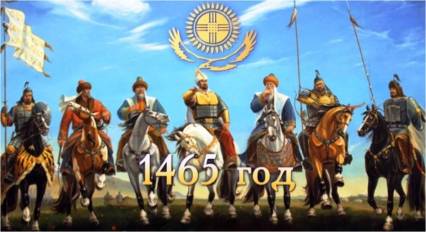
According to the renowned Russian scholars Vladimir Dahl and Nikolay Baskakov, the ethnic name of “Kazakh” has Turkic origins.
In old Turkic sources the concept of “qazaqlyq” was used as a symbol of freedom and the free way of life.
As Baskakov noted, all interpretations of the word “Kazakh” are related to each other and have common roots, which mean an “independent person”.
He wrote, “the same meaning is associated with the name of Turkic nationality – Kazakhs – and it means a free and independent nomad”.
The early 16th century source known as Zayn ad-Din Vasifi’s “Badai Al-wakai” labelled the lands ruled by Kazakh khans as “Kazakhstan”.
The map drawn in 1562 based on information collected by the English traveller and diplomat Anthony Jenkinson – the envoy in Moscow for the English Queens Mary and later Elizabeth the First named the vast land between “Tashkent” in the south and “Siberia” in the north as “Cassackia”.
The greatest political prominence and territorial expansion of the Kazakh Khanate was under the reigns of Khan Qasym who ruled between 1511 and 1523 and later Khan Khak-Nazar who ruled between 1538 and 1580.
During these periods, the Kazakh khans pursued active, independent domestic and foreign policies.
They ruled the lands between the Caspian Sea to the Altay Mountains, an area quite similar in its shape to the outline of modern Kazakhstan.
Already during this period, foreign policy was determined by a number of important directions, or vectors, which would find their continuation later.
It was during this time, for instance, that early diplomatic relations were established with Russia.
By the 17th century, the process of forming a single nation was generally complete.
As a result, all Turkic and non-Turkic tribes of Central Asia, ruled by the Kazakh Khanate, consolidated into an entity known as Kazakhs.
 Ethnic traditions, customs, a common religion, language and culture were established.
Ethnic traditions, customs, a common religion, language and culture were established.
The Kazakh Khanate’s rulers and their people fought hard to preserve the integrity of their national territory.
It was only through the unity of the Kazakh people that external aggression, civil strife and separatist tendencies of individual rulers could be overcome.
We must not also forget the Steppe diplomacy that successfully operated across the vast lands of Eurasia.
The Kazakh Khanate gradually but confidently emerged as an independent force in international relations.
The Kazakh State rulers carried out their foreign policy by diplomatic activity based on rules drawn up from their practical experiences of negotiations with representative of other states.
Only a nation with genes of peacefulness, good-neighbourliness and tolerance in its blood could have safeguarded such a vast territory through the art of diplomacy.
These have become the principles of a multi-vector policy, balance and pragmatism of contemporary Kazakh diplomacy.
The Kazakh Khanate’s history was, however, cut short by a number of negative factors.
In particular, military forces were depleted as a result of the bloody defensive wars of 17th and 18th centuries against a powerful nomadic Empire of the Jungars and the parallel expansion of a new dominant power in Eurasia – the Russian Empire.
It was the Russian Empire, which eventually incorporated lands of the Kazakh khanate – partly voluntarily, partly conquered by force of European weaponry, in the 130 years between 1731 and 1865.
Then followed a controversial, although not a totally negative, period of development under the rule of Russian Tsars.
In the early 20th century, when Russia faced a wave of revolutionary democratic activism, a fresh impetus for Kazakh statehood came from the activities of a new generation of Kazakh intellectuals.
This resulted in formation of the short-lived government of ALASH ORDA, with Alash being a synonym of the name Kazakh.
The All-Kazakh Congress, held in Orenburg city in 1917, created a territorial and national autonomy “Alash” embracing a number of regions with Kazakh population.
All executive powers were passed to the Temporary National Council of Alash Orda, which consisted of 25 members and was led by the eminent statesman, liberal politician, and true patriot Alikhan Bukeykhanov.
Assessing the significance of those events, President Nursultan Nazarbayev in his book “In the Stream of History” wrote that through the Government of Alash Orda: “The Kazakh nation obtained a real chance to reach its primary objective of recreating a national statehood.
However, the peaceful development of events was interrupted by a new crisis in the Russian society, which led to the establishment of a dictatorship of the Bolshevik party”.
Nevertheless, these new socio-political realities led to Kazakhstan having a chance to recapture some form of nationhood.
Milestone events in this process were the creation of the Kazakh Autonomous Soviet Republic in 1920 and of the Kazakh Soviet Socialist Republic in 1936.
However, the truth is that autonomous Kazakh statehood existed only formally.
In reality, there was limited sovereignty and a significant dependence of its authorities first on the Russian Soviet Federative Socialist Republic and later on the Soviet Union’s leadership.
This all changed with the independence that Kazakhstan gained in 1991, which saw a new stage of Kazakh statehood.
This heralded dynamic political, economic, social and cultural development.
People throughout the world are now aware of our nation’s achievements during this period.
They include the move of our nation’s capital, hosting the OSCE Summit in Astana and the Congresses of Leaders of World and Traditional Religions, the triumph of our Olympic team in London 2012, and winning the right to host the EXPO 2017 in Astana.
That is why the 550th anniversary of the first national state of the Kazakhs is so important to our country and people.
In September, with the participation of our President and many foreign visitors, there was a celebration of this significant historical milestone.
In October, the ancient city of Taraz in the south of our country will host further celebrations.
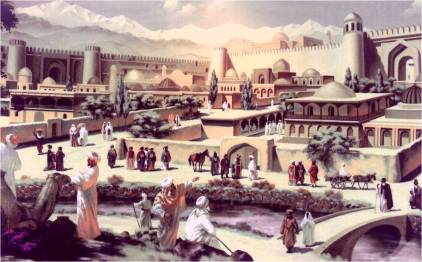
Taraz-the capital city of Kazakh Khanate and the place of the 1465 proclamation of the first Kazakh state by Sultans Zhanibek and Kerey (reconstruction)
Taraz is the capital of the region where the actual events of the formation of the Kazakh khanate took place.
There, on October 8, Kazakhstan will hold a big celebration under the open sky to recreate the atmosphere of those historic events that happened on this land 550 years ago.
Your Excellencies, ladies and gentlemen,
Thank you for listening to my attempt to explain the importance of the celebration of the 550th anniversary of the Kazakh khanate for our nation.
I believe this will help improve understanding of the history and identity of the people of Kazakhstan.
Let me end what has been a lengthier statement than usual.
Thank you for your attention. I would be delighted to answer any questions and to hear your opinions and comments on what I have said.
October 13, 2015
Posted by centrulspri |
Astana, Blackseanews Agency, Daulet Batrashev, Diplomacy, Eastern Europe, Economy, Foreign policy, History, Informations, International Relation, Kazakhstan, Leaders, Mass media, News, Nursultan Nazarbayev, Politics, President Nursultan Nazarbaev, President Nursultan Nazarbayev, Religion | 16th century, All-Kazakh Congress, Ambassador of Kazakhstan Daulet Batrashev on the Conference dedicated to the celebration of the 550th anniversary of the foundation of the Kazakh Khanate (Statehood), and winning the right to host the EXPO 2017 in Astana, authoritative historical sources, “The first Turkic Empire (552-603) was part of the system of political and economic relations between Byzantium, Byzantium, Central Asian historian Mirza Mohammed Haydar Dulati, China, created a territorial and national autonomy “Alash” embracing a number of regions with Kazakh population, current territory of Kazakhstan were lands inhabited by Iranian-speaking and Turkic-speaking tribes: the Saka, Eke Mongol Ulus (the Great Empire of Genghis Khan), English traveller and diplomat Anthony Jenkinson, Great Steppe empires – the Turkic Kaganate (of the 6th to 8th centuries), head of the state, held in Orenburg city in 1917, hosting the OSCE Summit in Astana and the Congresses of Leaders of World and Traditional Religions, in the 130 years between 1731 and 1865, India, Iran, Iran and China, Kangly, Kazakh Khanate it is a great creation of the nomadic civilization say`s Kazakhstan Ambassador to Romania- Daulet Batrashev, Kazakh Khanate was not, Kazakh people’s first formalized state emerged, Kypchak confederation was a set of clans and tribes, move of our nation’s capital, Nursultan Nazarbayev, of course, partly conquered by force of European weaponry, population of Great Steppe, President Nazarbayev has written, President Nursultan Nazarbayev in his book “In the Stream of History”, Russia and the countries of Eastern Europe, Russian Empire, Saka’s nomadic country of Turan bordered Iran, Sultans Zhanibek and Kerey-the founding fathers of Kazakh Khanate in Taraz-1465, The fall of the Shaybanid dynasty cleared the path for the establishment of Kazakh Khanate and for three centuries of stability in Central Asia under the kazakh control, the first chapter in the history of the Kazakh people, the Kazakh Khanate was already known throughout much of Eurasia, the land of Indo-Aryan people, The Silk Road was crossing the heartland of Kazakh Khanate, the triumph of our Olympic team in London 2012, the Turkic Empire stretched from Manchuria to the Gulf of Kerch and from the Yenisei River to the Amu Darya, to the north of the Amudarya and Syrdarya rivers, Usuns and Huns, vast eastern country of Scythia, vast land between “Tashkent” in the south and “Siberia” in the north as “Cassackia”, which eventually incorporated lands of the Kazakh khanate - partly voluntarily, which would be also known as “the country of Saka people” |
Leave a comment
On 27 October 2014, the taking office protocol meeting, between Prof.Dr.Anton Caragea, President Director-General of Institute of International Relations and Economic Cooperation and H.E. Daulet Batrashev, Ambassador of Republic of Kazakhstan, had taken place.
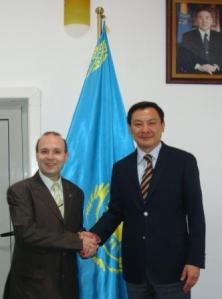
Prof.Dr.Anton Caragea, President Director-General of Institute of International Relations and Economic Cooperation and H.E. Daulet Batrashev, Ambassador of Republic of Kazakhstan.
In the beginning of the meeting Prof.Dr.Anton Caragea express his heartily congratulation, on the occasion of beginning of mandate of H.E. Daulet Batrashev, as the first Ambassador of Kazakhstan to Romania, a nomination that constitutes an unmistakable sign of a successful strategic relation.
In his speech Professor Dr. Anton Caragea had appreciated that between Romania and Kazakhstan we are witnessing a large area of common interests such as: a strong and stable economic relation, that is making Kazakhstan the second strategic foreign investor in Romanian economy, an open, sustained and substantial political dialogue and a common sentiment of brotherhood. All this are elements that could serve as a bridge of good understanding between the two nations.
The Romania- Kazakhstan strategic friendship must be an example of constructing strong relations between Romania and Central Asia.
In the last decade, the bilateral dialogue with Kazakhstan was exceptional in amplitude, seriousness and efficacy and this bilateral long term commitment it constitute an obligation for both of the countries to continue building this framework of dialogue and friendship.
H.E. Daulet Batrashev had expressed his appreciation for the encouragement`s offered by Prof. Dr. Anton Caragea and had stated that the vision of an economic, politic and cultural special relationship, between Romanian and Kazakhstan, is a mutual shared vision.
The dialogue had continued on concrete aspects and analyses of economic, political and cultural bilateral relations and on ways of fostering and enriching this dialogue on to the future.
Concrete fallow-up actions where established as: creating a special press file dedicated to the National Day of Kazakhstan, broadcasting special documentaries about important personalities of historical significance for Kazakhstan, expanding cultural and educational cooperation, receiving an important parliamentarian delegation and fostering the dialogue in the diplomatic sphere.
An important item on the agenda was establishing a special conference to mark the 550 years of statehood of Kazakhstan, an important landmark for modern Kazakhstan and the parties agreed on a calendar of events destined to transform 2015 in the KAZAKHSTAN CELEBRATION YEAR IN ROMANIA.
The dialogue led the foundations of a successful diplomatic mandate and offered the solutions necessary to foster and develop the friendly relations between Romania and Kazakhstan and constitutes a promise to continue a successful direction on Romanian diplomatic action.
November 2, 2014
Posted by centrulspri |
Astana, Blackseanews Agency, Diplomacy, Eastern Europe, Ecology, Economy, History, Informations, Institute of International Relations and Economic Cooperation, International Relation, Kazakhstan, Leaders, Mass media, News, Nursultan Nazarbayev, Oriental Art, OSCE-Organisation for Security and Cooperation in Europe, Politics, Religion, Romanian economy, Romanian Foreign Policy, Tourism, WORLD EXPO 2017 | Ambassador of Republic of Kazakhstan, an important landmark for modern Kazakhstan, Anton Caragea, appreciated H.E. Daulet Batrashev, are all perfect landmarks of this special relationship, as the first Ambassador of Kazakhstan to Romania, between Prof. Dr. Anton Caragea, broadcasting special documentaries about important personalities of historical significance for Kazakhstan, creating a special press file dedicated to the National Day of Kazakhstan, Daulet Batrashev, expanding cultural and educational cooperation, H.E. Daulet Batrashev had expressed his appreciation for the encouragement`s offered by Prof. Dr. Anton Caragea, Institute of International Relations and Economic Cooperation, Kazakhstan, KAZAKHSTAN CELEBRATION YEAR IN ROMANIA, Kazakhstan the second strategic foreign investor in Romanian economy, on the occasion of beginning of mandate of H.E. Daulet Batrashev, President Director-General of Institute of International Relations and Economic Cooperation and H.E. Daulet Batrashev, prof.dr.Anton Caragea, Prof.Dr.Anton Caragea express his heartily congratulation, receiving an important parliamentarian delegation and fostering the dialogue in the diplomatic sphere, Romania- Kazakhstan strategic friendship must be an example of constructing strong relations between Romania and Central Asia, ROMANIA-KAZAKHSTAN: A STRATEGIC FRIENDSHIP REASSERTED, the 550 years of statehood of Kazakhstan, the Romanian vote in favor of Astana hosting World Expo 2017 and the grandiose celebration of the 20 years of diplomatic relations between the two countries, the support offered by Romania to the outstanding Kazakhstan Presidency of O.S.C.E. (Organization for Security and Cooperation in Europe), the taking office protocol meeting |
Leave a comment
In perioada 29 mai-7 iunie 2014, o delegatie romaneasca, condusa de E.S. Profesor Dr. Anton Caragea, Director al Institutului de Relatii Internationale si Cooperare Economica a efectuat o vizita oficiala in Republica Zimbabwe.
Vizita a fost destinata sa restabileasca relatia bilaterala, dintre Romania si Republica Zimbabwe si intreaga regiune de sud a Africii, o regiune in plina dezvoltare economica si legata prin conexiuni traditionale de tara noastra.

Excelenta Sa Presedintele Republicii Zimbabwe –Robert Gabriel Mugabe-un adevarat erou african si Prof.Dr. Anton Caragea-Director IRICE
In timpul vizitei Prof. Dr. Anton Caragea a avut o intalnire cu Excelenta Sa Presedintele Republicii Zimbabwe –Robert Gabriel Mugabe care a declarat ca vizita Profesorului Dr. Anton Caragea ne face stralucim de bucurie si dragoste.
Presedintele Robert Mugabe a multumit totodata Prof.Dr. Anton Caragea pentru sprijinul sau permanent in promovarea turismului in Zimbabwe declarand ca: atunci cand altii se gandeau sa ne pedepseasca, dvs. va gandeati sa ne rasplatiti si sa ne faceti prieteni. Va multumim din inima stimate profesor!
La randul sau, Prof. Dr. Anton Caragea a declarat ca intalnirea cu presedintele Mugabe este extraordinara si ca nu a uitat niciodata cei zece ani petrecuti de Presedintele R.G. Mugabe in inchisorile coloniale, ca intreaga lumea nu a uitat cei 20 de ani de activitate revolutionara cu riscul vietii si al linistii, in opozitie fata de absurdul regim de apartheid si segregatie din vechea Rhodesia.
Tot asa, nu uitam vorbele de reconciliere spuse dupa ani de lupta, cu zece ani inainte de Nelson Mandela: ″Daca ieri ne-am infruntat ca niste inamici acum suntem prieteni, daca ieri ma urati, astazi nu puteti sa evitati dragostea care ne leaga.
Nu vom uitat niciodata ca acum 35 de ani, de la Harare, dvs ati chemat toate natiunile Africii sa se trezeasca din lungul somn al colonialismului catre o viata noua de impliniri.
Numele vostru va fi pentru totdeauna inscris pentru mine si pentru toti oamenii onesti din lume alaturi de parintii libertatii africane: Kwame Nkrumah, Julius Nyerere, Jomo Kenyatta ca un gigant al libertatii si luptei pentru egalitate in Africa si in intrega lume″.
Profesor Dr. Anton Caragea a mai avut intalniri cu J.T.R Majuru- Vice-Presedinte al Republicii Zimbabwe, S.K.Moyo- Ministru Principal ( Prim Minister) al Zimbabwe, N. Goche-Ministru al Afacerilor Externe si Ministrul Turismului -Walter Mzembi etc.

Un moment de destindere si veselie intre Presedintele Robert Gabriel Mugabe si Prof.Dr. Anton Caragea
In timpul discutiilor a fost stabilit cadrul cooperarii culturale, deschiderea de consulate onorifice si de consilii de afaceri bilaterale precum si oportunitati de investitii si cooperare intre Republica Zimbabwe, regiunea de sud a Africii si Romania.
Delegatia romaneasca s-a bucurat de un sofisticat program cultural, incluzand vizite la Muzeul de Istorie din Harare, Arcul Eroilor Nationali si minunatul oras din secolulul XII, Marele Zimbabwe, inscris pe lista UNESCO si acoperind mai mult de 700 de hectare si apoi oportunitatea de a descoperi cea mai mare cascada din lume: Victoria.
In semn de apreciere, Profesor Dr. Anton Caragea a ocupat apartamentul Winston Churchill din faimosul hotel victorian din Victoria Falls.
Vizita la nivel inalt, prima dupa 25 de ani de absenta in relatia bilaterala, a oferit partilor oportunitatea de a discuta proiecte concrete culturale, turistice si de cooperare si pentru a sublinia sprijinul bilateral pentru dezvoltarea relatiei sociale si politice.
Republica Zimbabwe devine acum principalul partener strategic in regiunea de sud a Africii, oferind nenumarate oportunitati in dezvoltarea unei relatii prietenesti.
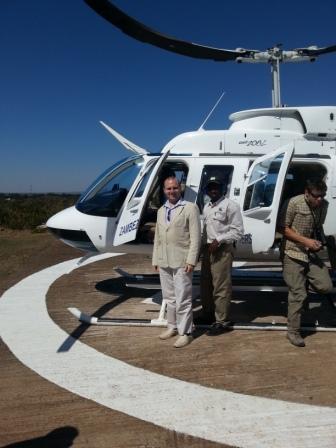 Profesor Dr. Anton Caragea si delegatia sa fac un tur cu elicopetrul al Cascadei Victoria intre Zimbabwe si Zambia
Profesor Dr. Anton Caragea si delegatia sa fac un tur cu elicopetrul al Cascadei Victoria intre Zimbabwe si Zambia

Casacada Victoria vazuta din elicopter ( 3.000 de metri)

Cascada Victoria-cea mai mare cascada din lume.

Profesor Dr. Anton Caragea vizitand Marele Zimbabwe ( cel mai mare complex palatial din Africa (sec.XII)
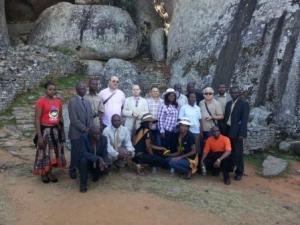
In inima complexului Marele Zimbabwe

Safari pe elefanti in inima desertului din Zimbabwe

Profesor Dr. Anton Caragea da un interviu la Televiziunea Nationala din Zimbabwe
June 10, 2014
Posted by centrulspri |
African affairs, Blackseanews Agency, Diplomacy, Diplomatie, Eastern Europe, Economia Romaniei, Educatie, Foreign policy, History, Informations, Institute of International Relations and Economic Cooperation, Institutul de Relatii Internationale si Cooperare Economica, International Relation, Mass media, News, Orient, Politica externa a Romaniei, PREMIUL PENTRU VOCATIA COOPERARII INTERNATIONALE, President Robert Mugabe, Relatii Internationale, Religion, Turism, Universitati, WORLD BEST TOURIST DESTINATION AWARD, Zimbabwe | apartamentul Winston Churchill din faimosul hotel victorian din Victoria Falls, Arcul Eroilor Nationali si minunatul oras din secolulul XII, cadrul cooperarii culturale, condusa de E.S. Profesor Dr. Anton Caragea, DELEGATIA ROMANA IN VIZITA IN AFRICA, deschiderea de consulate onorifice si de consilii de afaceri bilaterale precum si oportunitati de investitii si cooperare intre Republica Zimbabwe, Director al Institutului de Relatii Internationale si Cooperare Economica a efectuat o vizita oficiala in Africa, inscris pe lista UNESCO si acoperind mai mult de 700 de hectare si apoi oportunitatea de a descoperi cea mai mare cascada din lume: Victoria, J.T.R Majuru- Vice-Presedinte al Republicii Zimbabwe, Jomo Kenyatta ca un gigant al libertatii si luptei pentru egalitate in Africa si in intrega lume, Julius Nyerere, Marele Zimbabwe, Muzeul de Istorie din Harare, N. Goche-Ministru al Afacerilor Externe si Ministrul Turismului -Walter Mzembi, o delegatie romaneasca, o regiune in plina dezvoltare economica si legata prin conexiuni traditionale de tara noastra, oferind nenumarate oportunitati in dezvoltarea unei relatii prietenesti, parintii libertatii africane: Kwame Nkrumah, regiune de sud a Africii, regiunea de sud a Africii si Romania, Republica Zimbabwe devine acum principalul partener strategic in regiunea de sud a Africii, S.K.Moyo- Ministru Principal ( Prim Minister) al Zimbabwe |
1 Comment
Between 24-28 March 2014, Professor Dr. Anton Caragea, Director of Institute of International Relations and Economic Cooperation of Romania was invited for an official visit to the State of Qatar, on the occasion of the 11 Inter-confessional Dialogue Conference held in Doha.
During the conference works Professor Dr. Anton Caragea held a key note speech on the issues related to the role of youth in promoting interfaith dialogue and inter-religion understanding and chaired a round table on the ways and ideas to foster dialogue and inter-civilization dialogue.
 Museum of Islamic Art of Doha: a center of cultural activity on the Gulf area.
Museum of Islamic Art of Doha: a center of cultural activity on the Gulf area.
On the occasion of his visit to the State of Qatar, Professor Dr. Anton Caragea held a number of meetings, destined to promote the mutual god understanding and the Qatar-Romania cooperation.
 H.E. Professor Dr. Anton Caragea helds meeting at Qatar Camber of Commerce and Industry
H.E. Professor Dr. Anton Caragea helds meeting at Qatar Camber of Commerce and Industry
During the meetings a dialogue was held with the management of the Chamber of Commerce and Industry of the State of Qatar where issues such as: economic opportunities offered by Romanian market, investments in tourism industry of Romania and the necessity to open a Qatari bank in Romania where discussed.
 H.E. Professor Dr. Anton Caragea and Chairman of Qatar National Television-Sheik Abdulaziz Thani Al-Thani.
H.E. Professor Dr. Anton Caragea and Chairman of Qatar National Television-Sheik Abdulaziz Thani Al-Thani.
An ample and far reaching dialogue was held with the Chairman of National Television of Qatar-Sheik Abdulaziz Thani Al-Thani. During the meeting where tabled issues such as: exchange of cultural programs, television productions, promoting the image of the State of Qatar in the Romanian mass media and the opportunities to confer the BEST CULTURAL TELEVISION title for Qatar National Television.
The productive and extensive dialogue had continued at the headquarters of National News Agency of Qatar with General Director Mr. Ahmed Saad Alboainin.
 H.E. Professor Dr. Anton Caragea in amicable discussions with National News Agency of Qatar General Director, Mr. Ahmed Saad Alboainin
H.E. Professor Dr. Anton Caragea in amicable discussions with National News Agency of Qatar General Director, Mr. Ahmed Saad Alboainin
Here where tabled, during the amicable dialogue, issues such as: information exchanges, naming a media representative of Qatar News Agency in Romania, inviting Romanian journalists to Qatar, bilateral promotion of activities, promoting the Qatari news output in Romanian mass media and attending international events organized by Qatar News Agency.

Mosque Mohammed bin Abdulwahab: a center of islamic research and faith.
The visit to Qatar encompassed also a cultural side: with visits to the Mosque Mohammed bin Abdulwahab and to the Museum of Islamic Art in Doha, an astonishing cultural establishment comprising a vast area of cultural artifacts, of real value, all in a futuristic display, putting the latest technique to the service of cultural and historical promotion in a truly unique arrangement, wordy of world appraisal.
The visit to the State of Qatar by Professor Dr. Anton Caragea was a momentous occasion in developing a special bilateral relation of friendship and cooperation between Romania and Qatar.
March 28, 2014
Posted by centrulspri |
Blackseanews Agency, Diplomacy, Ecology, Economy, Environment, Foreign policy, Informations, Institute of International Relations and Economic Cooperation, Institutul de Relatii Internationale si Cooperare Economica, International Relation, Islam, Mass media, News, Open Letter, Orient, Oriental Art, OSCE-Organisation for Security and Cooperation in Europe, Politics, Qatar, Religion, Romanian economy, Tourism, Travel, Universities | 11 Inter-confessional Dialogue Conference held in Doha, Chairman of Qatar National Television-Sheik Abdulaziz Thani Al-Thani, Director of Institute of International Relations and Economic Cooperation of Romania was invited for an official visit to the State of Qatar, economic opportunities offered by Romanian market, General Director Mr. Ahmed Saad Alboainin, investments in tourism industry of Romania, Mr. Ahmed Saad Alboainin, National News Agency of Qatar General Director, professor Dr. Anton Caragea, Qatar Camber of Commerce and Industry, ROMANIAN DELEGATION VISIT TO STATE OF QATAR |
Leave a comment
On 14 March 2014, in a open ceremony hosted at the Iasi Book Fair, the diplomatic and academic community of Romania had honored the public presentation of the ROMANIAN BOOK AWARD FOR 2013 bestow to the book THE TRUTH WILL SET US FREE by the senator Ionel Agrigoroaei.
The work had obtained this important cultural recognition as is combined in a successful manner the historical presentation o f the last 25 years of recent history of Romania with the outstanding political vision of the author and with a daring plan to foster the development of our country.
 Senator Ionel Agrigoroaei receives ROMANIAN BOOK AWARD FOR 2013
Senator Ionel Agrigoroaei receives ROMANIAN BOOK AWARD FOR 2013
The rich information unveiled is offering a coherent image of today’s challenges facing Romania such as: demographic crisis, economic collapse, excessive bureaucracy, luck of trust of the population in the political process and the corruption in the judicial, political and mass media sectors of the society in favor of illegitimate political and economic group of interests.
The author does not satisfy himself with a sterile appraisal but boldly projects the image of a Romania that is capable of economic and politic development by his own forces.
For this courage’s vision to build an alternative model of development of the country and for his commitment to support this development and to offer an alternative agenda to foster the national economy and to cleans the political life, the book is offering a fragment of extremely relevant recent history.
Supplementary, for promoting the book in the international and diplomatic community, the international audience is gaining unprecedented access to high quality information’s promoting the real potential and opportunities of Romania.
 Full hall at ROMANIAN BOOK AWARD CEREMONY FOR 2013
Full hall at ROMANIAN BOOK AWARD CEREMONY FOR 2013
The book THE TRUTH WILL SET US FREE is a first on national level to accurately describe the economic potential of our country and is achieving a major goal of national interest by promoting the generous potential of Romania in the world and supporting the presentation of Romania as a real value on the investment opportunity map of Europe.
The public unveiling of the book: THE TRUTH WILL SET US FREE and the handover of the prize where hosted in the special cultural environment of city of Iasi and during the spring BOOK FAIR, a special occasion to promote culture in the Moldavia region.
 THE TRUTH WILL SET US FREE-The book who won the prize for ROMANIAN BOOK AWARD FOR 2013
THE TRUTH WILL SET US FREE-The book who won the prize for ROMANIAN BOOK AWARD FOR 2013
Entrusting the prestigious cultural prize to a citizen of city of Iasi- senator Ionel Agrigoroaei had offered a remarkable occasion to project to the all country the status as cultural capital of Romania of the city of Iasi and a recognition to the authentic values of political and cultural life of this real of Romania.
Presentation of the book where made on behalf of diplomatic community by the Ambassador of State of Qatar-H.E. Saad Al Kobaisi and on behalf of academic and diplomatic community by Professor Dr. Anton Caragea-General Director of Institute of International Relation and Economic Cooperation.
 Qatar Ambassador H.E. Saad Al Kobeisi, receives a standing ovation from the participants to ROMANIAN BOOK AWARD CEREMONY FOR 2013
Qatar Ambassador H.E. Saad Al Kobeisi, receives a standing ovation from the participants to ROMANIAN BOOK AWARD CEREMONY FOR 2013
The Ambassador of State of Qatar, the state officially invited for the ceremony of ROMANIAN BOOK AWARD FOR 2013, presented also a small promotion movie about the role and place of Qatar in the world economy and in the Arabic Golf area, a show watched with attention by the attendance.
Another movie depicting the international activity f senator Ionel Agrigoroaei on behalf of Romania`s national interest was also projected for the delight of the public.
The event was concluded by a book signing ceremony, attended by more than 250 Romanian cultural phenomena passionate.
Autograph where offered by the laureate of ROMANIAN BOOK AWARD-senator Ionel Agrigoroaei and by the Ambassador of State of Qatar-Saad Al Kobaisi.
The 14 march 2014 ceremony was a get together for the passionate of historical legacy and of economic potential of Romania, for those who love books and culture and are protecting for the befit of future generations the riches and cultural patrimony of city of Iasi in a gathering enriched by the presence of diplomatic community eager to know the real potential, wealth and true history of Romania.
March 17, 2014
Posted by centrulspri |
Blackseanews Agency, Diplomacy, Eastern Europe, Economy, Environment, Foreign policy, Informations, Institute of International Relations and Economic Cooperation, Mass media, News, Politics, Religion, ROMANIAN BOOK AWARD FOR 2013, Universities | Ambassador of State of Qatar-H.E. Saad Al Kobaisi, corruption in the judicial, political and mass media sectors of the society, Qatar Ambassador H.E. Saad Al Kobeisi, real potential and opportunities of Romania, receives a standing ovation from the participants to ROMANIAN BOOK AWARD CEREMONY FOR 2013, ROMANIAN BOOK AWARD CEREMONY FOR 2013, ROMANIAN BOOK AWARD FOR 2013 GOES TO CITY OF IASI, ROMANIAN BOOK AWARD FOR 2013 GOES TO CITY OF IASI FOR IONEL AGRIGOROAEI BOOK: THE TRUTH WILL SET US FREE, Senator Ionel Agrigoroaei receives ROMANIAN BOOK AWARD FOR 2013, State of Qatar, the state officially invited for the ceremony of ROMANIAN BOOK AWARD FOR 2013, THE TRUTH WILL SET US FREE, THE TRUTH WILL SET US FREE-The book who won the prize for ROMANIAN BOOK AWARD FOR 2013 |
Leave a comment
On 10 June, 2013 a friendly and cooperation meeting between Prof. Dr. Anton Caragea, Director of Institute of International Relations and Economic Cooperation and H.E. Abdulrahman Al Rassi, Ambassador of Kingdom of Saudi Arabia had taken place.

Prof. Dr. Anton Caragea expressed his amicable fillings and friendly interest towards the recent evolution`s in Kingdom of Saudi Arabia. The Kingdom is playing an instrumental role in promoting cultural and economic development in the Middle East area. Also Romania is witnessing with sympathy and interest the latest evolution from Saudi Arabia, including the government measures for consolidating the economic development and creating a diversified economy and the decision to foster social inclusion and cultural development in the Kingdom.
Romania is and it will always be ready to build a special and stable relation with the Kingdom of Saudi Arabia, a relation based on the community of interests in the economic, politic and cultural areas, concluded Professor Dr. Anton Caragea.
H.E. Ambassador Abdulrahman Al Rassi had express his appreciation for the encouragements received and for the amicable atmosphere registered amongst Romanian people towards the culture and civilization of Saudi Arabia.
Between the two nations there is an ample desire for information and cooperation and to amplify the bilateral relation stated Ambassador Abdulrahman Al Rassi.
On this solid foundation we can consider an extension of the cultural dimension of bilateral relation and in building new bridges of dialogue between Romania and Kingdom of Saudi Arabia.
The parties had appreciated that between Romanian and Kingdom of Saudi Arabia there are large area of common interests, designed to forge a good understanding between the two nations.
An increase in the presence of Kingdom of Saudi Arabia related news in Romanian mass media and informational market and a better reflection of his specific culture to Romanian public and the presence of an academic message of support where also tabled at the meeting.
The dialogue had continued on concrete aspects and analyses of economic, political and cultural bilateral relations and on ways of fostering this dialogue on to the future.
The discussion led the foundations for continuing the dialogue and fostering the relations between Romania and Kingdom of Saudi Arabia.
June 12, 2013
Posted by centrulspri |
Blackseanews Agency, Diplomacy, Eastern Europe, Ecology, Economy, Foreign policy, G20 Summit, History, Ierusalim - Al Quds, Informations, Institute of International Relations and Economic Cooperation, International Relation, Islam, Mass media, News, Open Letter, Orient, Oriental Art, OSCE-Organisation for Security and Cooperation in Europe, Religion, Romanian Foreign Policy, Tourism, Travel, UNESCO Heritage List, United Nations Global Compact, Universities | Abdulrahman Al Rassi, Ambassador Abdulrahman Al Rassi, Ambassador of Kingdom of Saudi Arabia, building new bridges of dialogue between Romania and Kingdom of Saudi Arabia, cultural and economic development in the Middle East area, director of Institute of International Relations and Economic Cooperation, foster social inclusion, fostering the relations between Romania and Kingdom of Saudi Arabia, friendly and cooperation meeting between Prof. Dr. Anton Caragea, Kingdom of Saudi Arabia, ROMANIA-SAUDI ARABIA FRIENDLY DIALOGUE, Romanian mass media and informational market |
Leave a comment
 The role of the Ambassador office will be to contribute to promoting cultural and tourism profile of the Kingdom, with all the rights, prerogatives and obligations conferred upon the role of Ambassador.
The role of the Ambassador office will be to contribute to promoting cultural and tourism profile of the Kingdom, with all the rights, prerogatives and obligations conferred upon the role of Ambassador. Unlike in the previous era, each of these had a number of important features as they emerged largely or exclusively on the territory of modern Kazakhstan.
Unlike in the previous era, each of these had a number of important features as they emerged largely or exclusively on the territory of modern Kazakhstan. Ethnic traditions, customs, a common religion, language and culture were established.
Ethnic traditions, customs, a common religion, language and culture were established. Profesor Dr. Anton Caragea si delegatia sa fac un tur cu elicopetrul al Cascadei Victoria intre Zimbabwe si Zambia
Profesor Dr. Anton Caragea si delegatia sa fac un tur cu elicopetrul al Cascadei Victoria intre Zimbabwe si Zambia Museum of Islamic Art of Doha: a center of cultural activity on the Gulf area.
Museum of Islamic Art of Doha: a center of cultural activity on the Gulf area. H.E. Professor Dr. Anton Caragea helds meeting at Qatar Camber of Commerce and Industry
H.E. Professor Dr. Anton Caragea helds meeting at Qatar Camber of Commerce and Industry  H.E. Professor Dr. Anton Caragea and Chairman of Qatar National Television-Sheik Abdulaziz Thani Al-Thani.
H.E. Professor Dr. Anton Caragea and Chairman of Qatar National Television-Sheik Abdulaziz Thani Al-Thani. H.E. Professor Dr. Anton Caragea in amicable discussions with National News Agency of Qatar General Director, Mr. Ahmed Saad Alboainin
H.E. Professor Dr. Anton Caragea in amicable discussions with National News Agency of Qatar General Director, Mr. Ahmed Saad Alboainin Senator Ionel Agrigoroaei receives ROMANIAN BOOK AWARD FOR 2013
Senator Ionel Agrigoroaei receives ROMANIAN BOOK AWARD FOR 2013 Full hall at ROMANIAN BOOK AWARD CEREMONY FOR 2013
Full hall at ROMANIAN BOOK AWARD CEREMONY FOR 2013






























 A PERFECT FRAGRANCE! DALI HAUTE PARFUMERIE-WORLD FAVORITE PERFUME FOR 2017. This is a unique Collection of five perfumes inspired by the jewelry creations of Salvador Dali, which perfectly represent the genius of this extraordinary artist.
A PERFECT FRAGRANCE! DALI HAUTE PARFUMERIE-WORLD FAVORITE PERFUME FOR 2017. This is a unique Collection of five perfumes inspired by the jewelry creations of Salvador Dali, which perfectly represent the genius of this extraordinary artist. ASTANA-CAPITAL OF THE FUTURE. HOST OF EXPO 2017
ASTANA-CAPITAL OF THE FUTURE. HOST OF EXPO 2017 BEST FASHION CREATOR-GENTLEMEN'S CORNER
BEST FASHION CREATOR-GENTLEMEN'S CORNER Blackseanews
Blackseanews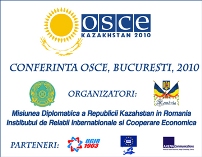 Bucharest Conference on OSCE 2010. A decisive year for Europe. Kazakhstan Presidency
Bucharest Conference on OSCE 2010. A decisive year for Europe. Kazakhstan Presidency CAMBODIA FREE AND FAIR ELECTIONS
CAMBODIA FREE AND FAIR ELECTIONS CASA PANCIU
CASA PANCIU CONFERENCE ON PEACE AND SECURITY IN EUROPE AND ASIA
CONFERENCE ON PEACE AND SECURITY IN EUROPE AND ASIA COTNARI-HOUSE OF WINES
COTNARI-HOUSE OF WINES Diplomat Club
Diplomat Club DIRECT DE LA FERMA
DIRECT DE LA FERMA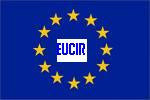 European Council on International Relation
European Council on International Relation EUROPEAN JOURNAL OF TOURISM
EUROPEAN JOURNAL OF TOURISM EUROPEAN TOURISM AWARDS
EUROPEAN TOURISM AWARDS EUROPEAN UNION COUNCIL ON TOURISM AND TRADE
EUROPEAN UNION COUNCIL ON TOURISM AND TRADE Institute of International Relations and Economic Cooperation
Institute of International Relations and Economic Cooperation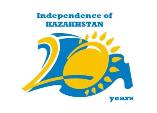 KAZAKHSTAN 20 YEARS OF INDEPENDENCE. PEACE AND CONSTRUCTION
KAZAKHSTAN 20 YEARS OF INDEPENDENCE. PEACE AND CONSTRUCTION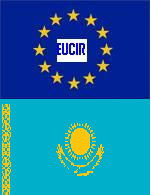 KAZAKHSTAN PRESIDENTIAL ELECTIONS 2011. EUROPEAN MONITORING MISSION
KAZAKHSTAN PRESIDENTIAL ELECTIONS 2011. EUROPEAN MONITORING MISSION KAZAKHSTAN-THE LEOPARD OF CENTRAL ASIA by professor Dr. Anton Caragea
KAZAKHSTAN-THE LEOPARD OF CENTRAL ASIA by professor Dr. Anton Caragea OSCE. KAZAKHSTAN PRESIDENCY. ROMANIAN SUPPORT BY PRESIDENT OF CONFERENCE ON OSCE-ANTON CARAGEA
OSCE. KAZAKHSTAN PRESIDENCY. ROMANIAN SUPPORT BY PRESIDENT OF CONFERENCE ON OSCE-ANTON CARAGEA ROMANIAN DIPLOMATIC BULLETIN
ROMANIAN DIPLOMATIC BULLETIN Sfantul si Cultul sfintilor
Sfantul si Cultul sfintilor Thinking Europe- bestseller
Thinking Europe- bestseller WILD TIME
WILD TIME WORLD BEST TOURIST DESTINATION
WORLD BEST TOURIST DESTINATION WORLD CAPITAL OF CULTURE
WORLD CAPITAL OF CULTURE WORLD TOURISM NEWS
WORLD TOURISM NEWS